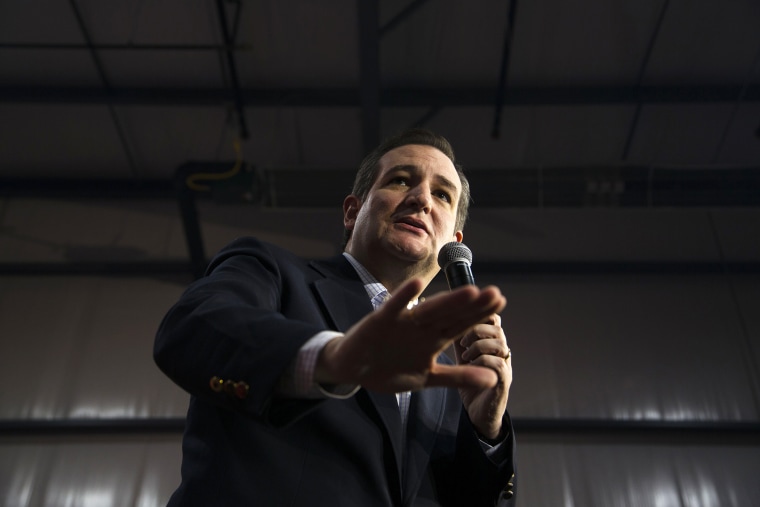As expected, with a week remaining before the Wisconsin presidential primaries, Gov. Scott Walker (R) announced his support this morning for Ted Cruz. With the Republican nominating contest about half over, the Texas senator now enjoys the support of 5 of the nation's 31 GOP governors -- which is a little higher than the totals for Donald Trump and John Kasich, but which still isn't an impressive tally.
The conventional wisdom is that the Republican establishment, left in an untenable situation, is making its peace with the fact that Cruz is preferable to Trump. John McCain, who's called Cruz a lying, crazy "wacko bird,"
said last week that he's ready to "put aside my anger in some cases and work with" his party's nominee, even if it's Cruz, "in every possible way that I can." Lindsey Graham has
gone much further in expressing his grudging support for his Texas colleague.
But let's not go
too far with these assumptions. The fact remains that much of the GOP still can't quite bring itself to support Cruz, even facing the prospect of a Trump nomination. Vox's Andrew Prokop
noted yesterday:
Yes, there is a small faction of the party willing to say in public that Trump should be stopped, and there are some more insiders willing to help behind the scenes. But there appears to be a much larger majority that, even now, doesn't want to bother lifting a finger. [...] Eighty-two percent of GOP House members, 90 percent of GOP senators, and 69 percent of GOP governors haven't endorsed any of the three remaining candidates. (Some had endorsed Marco Rubio, who has since dropped out, but even when he was in the race the majority of the party was neutral.)
Walker's announcement this morning obviously effects this tally a little, but the broader point remains sound: asked to choose between the lesser of two evils, most of the party's top elected officials prefer not to make any choice at all.
It's worth pausing from time to time to appreciate why, exactly, so many of those who work alongside Cruz dislike him so vehemently. Bloomberg Politics had
a good piece on this a couple of weeks ago:
[T]his is a guy who called his own Republican leader, Mitch McConnell, a liar on the Senate floor, a shocking breach of the chamber's cherished decorum. He helped goad House conservatives into shutting down the government in 2013, over the objections of Republican leaders in both chambers. And he also showed no hesitation to inconvenience his colleagues by forcing late-night or weekend votes that Cruz was destined to lose. [...] Senators' dislike of Cruz started almost as soon as he entered the chamber in January 2013.
The
piece highlighted nine incidents from the last four years in which Cruz offended, infuriated, and at times just annoyed his ostensible Republican allies. There can be no doubt that each took a toll, and are contributing to the party's reluctance to support him now.
Matt Yglesias
added recently that GOP senators "see Cruz as really the worst of all possible Washington worlds -- an extremist who really just poses as more ideologically pure than colleagues, advancing his own personal agenda while setting back the movement's cause. That's the kind of reputation that lands you friendless and alone."
